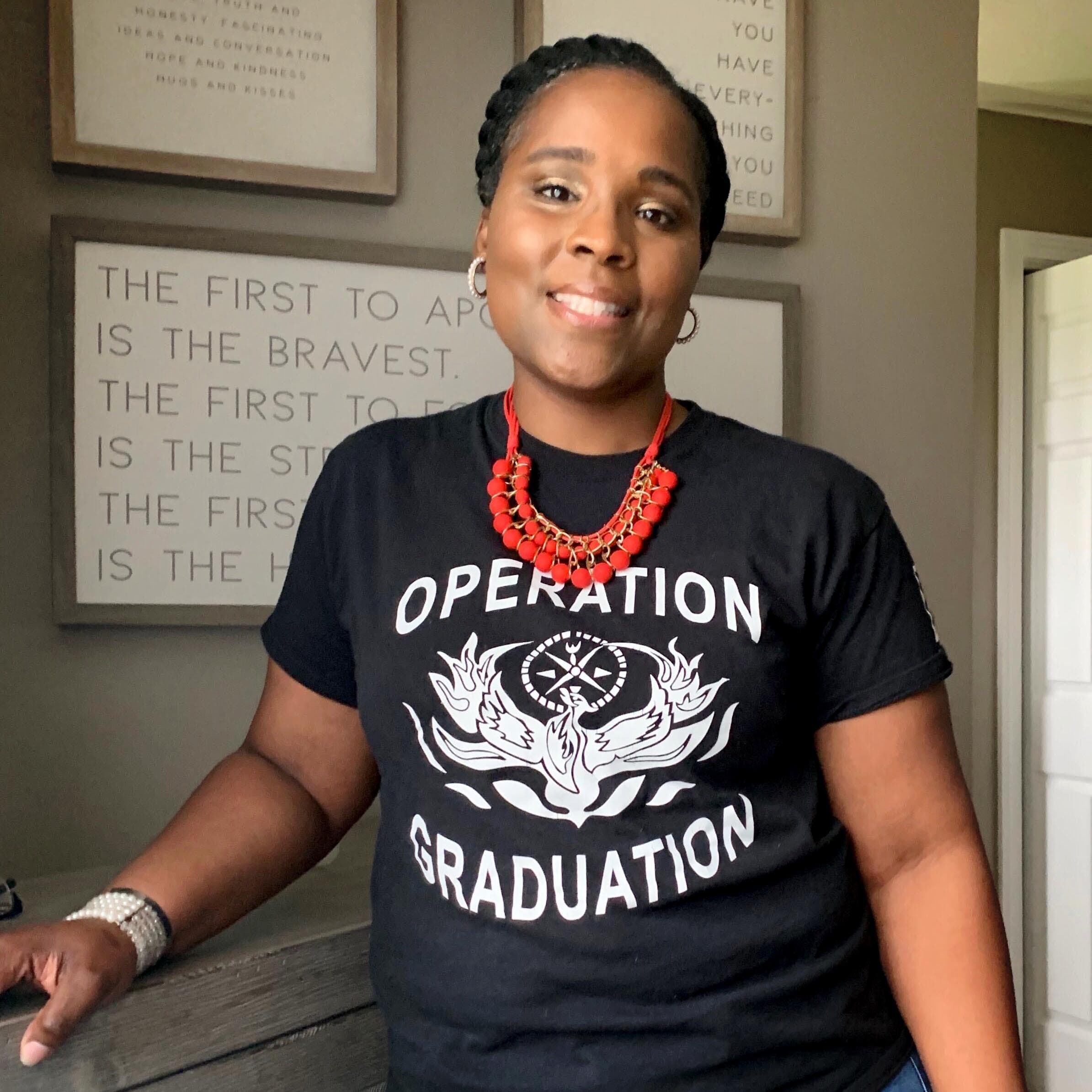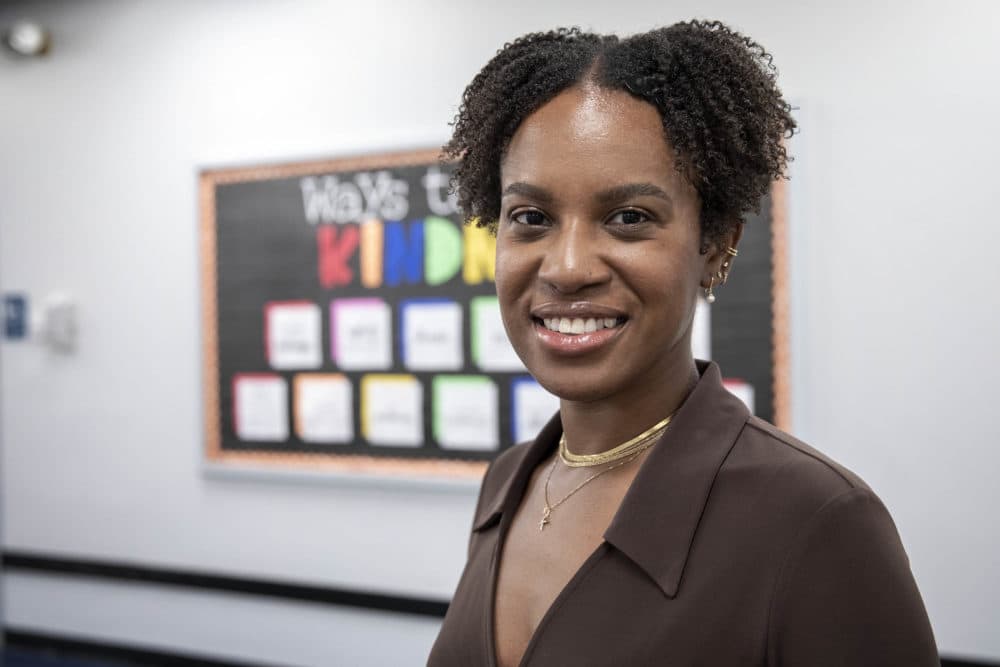Advertisement
School principals want more support in their demanding roles, report shows
ResumeAshley Davis wanted an opportunity to have wide-ranging impact on students and her school. That is a big part of what drew her to a school principal job after four years as a teacher at MATCH Charter Public School in Boston.
"The role that a principal and leader plays in a community, both including the school and beyond it, is unmatched," she said.
In 2019, Davis became the principal at the P.A. Shaw Elementary School in Mattapan, a school that is 85% low-income with a high concentration of Black and Hispanic students.
"I would say that that was one of the most fulfilling, but also most taxing jobs I've ever had," she said.
While Davis loved the work, she often faced bureaucratic hurdles and constantly fought for facilities improvements to her building. She also found herself in a situation with almost no work-life balance.
"The number of things that I had to navigate and juggle in order to get to the impact that I wanted to see for students and families was insane," said Davis.
"I would say that that was one of the most fulfilling, but also most taxing jobs I've ever had."
Ashley Davis, former principal
She eventually hit a point where she was burnt out and stepped down last May after three years in the role.
Challenges — and burnout — among school leaders are all too common and new data shows the retention landscape is not getting that much better, especially amid the COVID-19 pandemic.
According to the National Association of Secondary School Principals, the average principal tenure in 2017 was just four years. And a new report out Tuesday surveying 1,000 principals nationwide in U.S. middle and high schools from June shows nearly 40% may leave their jobs within the next three years.
Nearly one-third of respondents said a better work-life balance would cause them to stay longer in the profession while nearly three-quarters reported that educator shortages were an issue at their schools.
This matters because research shows high principal turnover causes a trickle-down effect that can lead to high teacher turnover, which ultimately impedes student progress.
"This cycle of preparation, retention and turnover is so costly," said Lauren Bassi, the director of leadership and school design at the education nonprofit, Springpoint.
"Not just in achievement but on community and experience," Bassi added. "There’s a devastating amount of talent lost and wisdom."
Where Massachusetts lags in principal hiring
The issue is particularly acute in Massachusetts because of the glaring lack of diverse leadership: only 12% of school principals are people of color even though 40% of students statewide identify as Black, Hispanic, Asian, Pacific Islander or Indigenous.
But Arria Coburn, the principal at Springfield Renaissance School, says school systems need to do more than just prioritize diversity.
"Great, you’ve hired them. 'Now what?' And I don’t think that that ‘now what’ is what people are thinking about," said Coburn, a principal now in her 8th year in the role.

Coburn says that while she received leadership training in administration before stepping into the position, there was no reflection as to how her identity as a Black woman would shape her role — or differ from those around her.
"When you become a principal, race — especially when you're a leader of color — is right there," Coburn explained. "There is no preparation for the difficult conversations with families who had never talked about race, had never experienced a Black leader, and had a lot of questions."
A perceived lack of professional support in a range of areas is partly why some people are reluctant to consider this job. Kettlynn Prophete, a dean of instruction at the Academy of the Pacific Rim Charter Public School in Hyde Park, said she's been approached several times by district leaders about principal jobs around the Boston area.
"And I've said no multiple times because that's what concerned me the most," said Prophete. "Where's the support to do this work?"
A new fellowship aims to help
To broaden the principal pipeline, Springpoint and the Barr Foundation co-launched a new fellowship program this summer called Transformative Leaders of Massachusetts. The goal of the two-year program is to provide training to educators who have an interest in higher leadership roles and connect them to a network of people who can support them down the road, like the principals of their current schools. The group also hopes that each cohort of fellows will develop personal bonds and provide support to each other.
The program also pays a $10,000-per-year stipend and seeks to address the diversity gap of principals in the state.
Bassi said it will be "critical" as far as "crafting a sense of belonging."
"And a sort of kitchen cabinet, the folks that you have to call with a variety of expertise and perspective," she said.
Prophete, a Black woman, is one of those participants. Just a month into the program, she says it is helping to shift her perspective as far as the realities of what it takes in order to do this kind of work.
"I'm open to it," she said. "Because I'm starting to crack the question of, 'What are my needs in order to step into a role like that?'"

This kind of professional development for future principals is part of a growing movement, according to Ronn Nozoe, CEO of the National Association of Secondary School Principals. He’s encouraged to see a lot more targeted help from nonprofits, universities and even state officials.
"This [retention] problem is so big it's not going to be solved by any one thing," said Nozoe. "Because you've got working conditions of the principalship, you've got compensation and pay, and respect from society."
Ultimately, Nozoe says long-lasting solutions for principal longevity begin with filling entry-level positions in education. Because that’s really where the pipeline starts.
